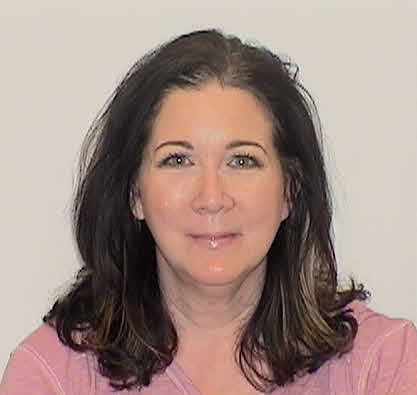Debbie Innes-Gomberg
Deputy Director at Los Angeles County Department of Mental Health
Alumna from CSPP, Los Angeles campus, 1992
Q: What is your current role in the field of psychology?
A: I started to work for the Los Angeles County Department of Mental Health right after graduation in 1992 and I've worked here ever since, so about 32 years. I started out as what we call a Clinical Psychologist I and then got licensed pretty quickly. After that, I worked in the jail, and I've worked in a variety of administrative settings and then I got promoted and now I'm the Deputy Director over Quality Outcomes and Training.
Q: Why did you decide to go to Alliant?
A: I was born and raised in Los Angeles and really wanted to stay in L.A. and CSPP was recommended to me by a number of different people. I applied there and my husband who was then my boyfriend also applied to CSPP. We both got in and went to school together and he still works for the Department of Mental Health as well.
Q: You were both in the program together and that's a lot of stress. How did that go and what did Alliant do to help you both get through the program?
A: Our experiences were similar. We had the same classes, not always in the exact same room, but we had the same curriculum. That was really helpful because I knew other people that were in relationships where their partner wasn’t in the field and it was very, very difficult for them. I think having the same experiences around needing to study, working when you could, and all of that was very helpful. And then also when it came time for dissertations, we provided moral support for each other during that process.
Q: Was there anything that surprised you about the program?
A: The program really resonated with me. The majority of the students, at least in my year, had a psychodynamic orientation and I had a cognitive behavioral orientation, so I felt like I was among a handful of people that did the CBT intervention versus the psychodynamic interventions, and it really laid a good foundation for me. I chose internships and practicums that aligned with that.
Q: What about the program was special or unique that really helped you?
A: I loved my assessment class. It was fantastic. I loved professional roles which was probably a third- or fourth-year class. The teachers were very good. They all had experience, not only in what they taught but in private practice and in other settings. I had professors that were in the public mental health setting or had been there recently and I think in choosing the training sites that I did it really helped me to understand what public mental health is. Then I went to work in public mental health actually thinking I would go into private practice and once I got licensed, I realized that that is not where I want to go. I love public mental health. I love the teamwork that's associated with it and just the opportunity to help the clients that we serve.
Q: We often hear that the clinical psychology programs encourage students to try different things before choosing a track. Is that how your experience was at the time?
A: I think they really encouraged you to identify the track that you wanted to work in or learn about. They didn't structure or have you go into a certain branch. It wasn't just like academics or research or this or that it was a wide variety.
Q: What was the cohort culture like back in the 1990s?
A: The cohort was very much like a family. In fact, there are people that I still work with in the Department of Mental Health that graduated around the same time as me.
Q: How was the transition from Alliant into the workforce? How did that go for you?
A: I think it was fairly seamless. My first job was in the Los Angeles County jail, and I don't know that anything really prepares you for that but nevertheless the nice thing about it was the group of psychologists that were working with me in the jail, most of us went to CSPP and so that was fantastic. We all studied for the licensing exam around the same time, so it really felt like we were moving together from education and training to the role of employment and professional growth.
Q: Did Alliant provide you with practicum work early on in the program at that time?
A: I started my practicum during my second year, so I had a lot of classes during the first year and then second year I think it was 15 hours a week probably.
Q: What else about your experience do you think would be interesting for a prospective student to know coming into the program as they look towards the workforce in the future?
A: I think taking advantage of the opportunities that your training presents you. A lot of the training sites are in public mental health settings, and I think that just being able to take advantage of that and to learn is important. Public mental health has so many different opportunities in terms of the populations you work with, where you work, and who you work with, so I would say to optimize that experience and think beyond the private practice boxes.

